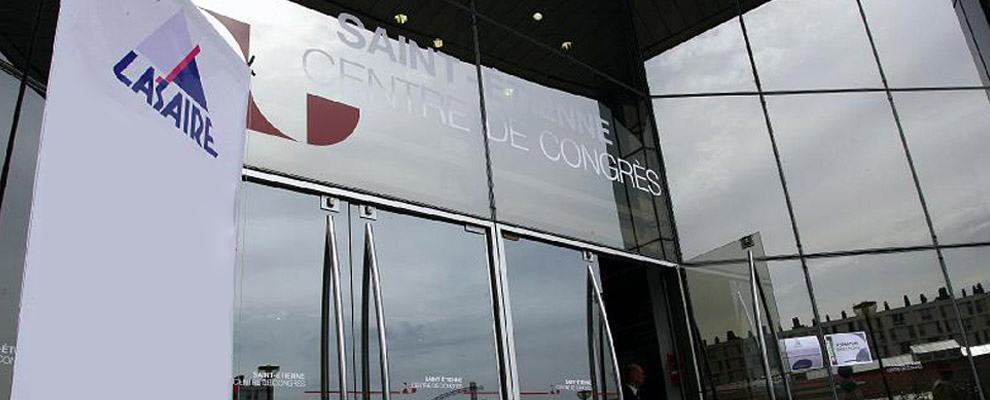The Europe work employement biennials 1990-2017
Lasaire opened a fundamental reflection on the social dimension of Europe when it launched it's biennial meetings in 1990. These meetings have now become a reference point for the European social debate and are an opportunity to advance social thinking, test and develop new ideas, bring together the widest possible range of actors and social cultures, and encourage "capillary action" between social models.
Issues concerning employment and exclusion from the workplace and society have gradually come to the fore: the central theme of the Biennials can be summed up as: "How to put employment at the heart of building Europe". To fulfil its ambition of putting employment and the social dimension at the centre of Europe, LASAIRE sought to create an original forum to facilitate pluralist exchanges of views, give social competencies and practices that are too often self-contained an opportunity to meet and compare their analyses, and outline suggestions and ingredients for solutions.
These meetings owe their originality to the fact that from the start the debates have been organized in a pluralist framework bringing together the European social actors (the European Commission, Business-Europe/UNICE, CEEP, ETUC) employer's federations and business representatives, trade union organizations and union officials in companies, academies and experts from the various member states.
We originally started our intention to make these Biennials truly European meetings. The issues to be discussed were chosen from a directly European standpoint and we made sure that a wide range of social actors would be invited to take part. This way of proceeding was not fully achieved from the outset and we gradually refined it, continually strengthening the European approach in the design of the Biennials, their conceptual formulation and the transnational cooperation in their organization.
These meetings are preceded by a long period of preparatory and development work in close cooperation with European social actors, Business-Europe/UNICE, CEEP, ETUC and the Commission, plus labor ministers and leading experts well known in Europe. The debates are organized around a document that reviews the current parameters of the question to be discussed and highlights the main issues. The subjects discussed during the Biennials are partly a continuation and deeper analysis of questions already debated, and partly new topics chosen to reflect current events and demands. Each Biennials does however have a central theme.
The first two Biennials in 1990 and 1992 discussed the different aspects of buildings social Europe: structuring the European social actors, the Social Protocol to the Maastricht Treaty, the beginnings of the European social dialogue, the different socio-productive models in Europe, the place of the work, education and training, and labour relations in competition criteria, and immigration problems.
The key theme of the third meeting was work, un employment and European economic policy , around which were grouped the workshop subjects: the Europe of the regions, public services and building Europe, and combating exclusion.
The fourth was held against the background of renegotiating the European treaties. The fifth meeting was linked to the new situation created by the Single Currency. This is a reality that no-one now questions but which deserves to be discussed in more detail, particularly on points that were not settled in Amsterdam. At the same time we made the idea of a Europe-United States comparison an integral part of all topics discussed.
The sixth and seventh meetings were set around the Nice treaty and the enlargement issues. The 8th biennial in 2005, could discuss the fact that enlargement had come true but without deepening. On the eve of French and Dutch referendums, the main issue was : how an enlarged Europe could organize itself to be an actor to promote regulations and management of globalization ? The key issue of the 9th biennial in 2008, delt with “how to relaunch Europe after the rejection of the Constitutional Treaty in the French and Dutch referendums. The 10th meeting, in Paris, in 2012 looked at the economic crisis in the EU and the Euro crisis : how to strengthen the role of social actors in order to exit the crisis ?

